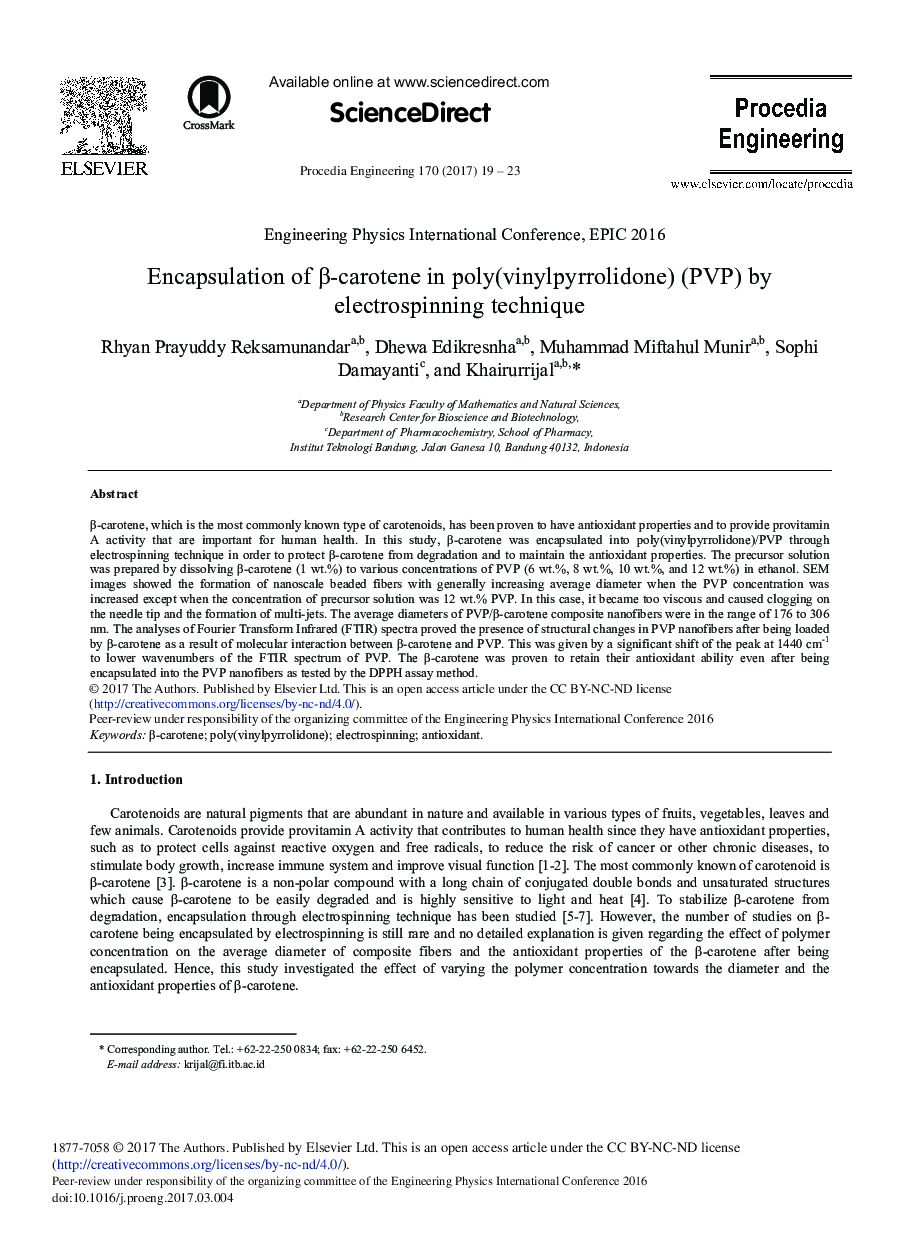| Article ID | Journal | Published Year | Pages | File Type |
|---|---|---|---|---|
| 5029010 | Procedia Engineering | 2017 | 5 Pages |
β-carotene, which is the most commonly known type of carotenoids, has been proven to have antioxidant properties and to provide provitamin A activity that are important for human health. In this study, β-carotene was encapsulated into poly(vinylpyrrolidone)/PVP through electrospinning technique in order to protect β-carotene from degradation and to maintain the antioxidant properties. The precursor solution was prepared by dissolving β-carotene (1 wt.%) to various concentrations of PVP (6 wt.%, 8 wt.%, 10 wt.%, and 12 wt.%) in ethanol. SEM images showed the formation of nanoscale beaded fibers with generally increasing average diameter when the PVP concentration was increased except when the concentration of precursor solution was 12 wt.% PVP. In this case, it became too viscous and caused clogging on the needle tip and the formation of multi-jets. The average diameters of PVP/β-carotene composite nanofibers were in the range of 176 to 306 nm. The analyses of Fourier Transform Infrared (FTIR) spectra proved the presence of structural changes in PVP nanofibers after being loaded by β-carotene as a result of molecular interaction between β-carotene and PVP. This was given by a significant shift of the peak at 1440 cm-1 to lower wavenumbers of the FTIR spectrum of PVP. The β-carotene was proven to retain their antioxidant ability even after being encapsulated into the PVP nanofibers as tested by the DPPH assay method.
